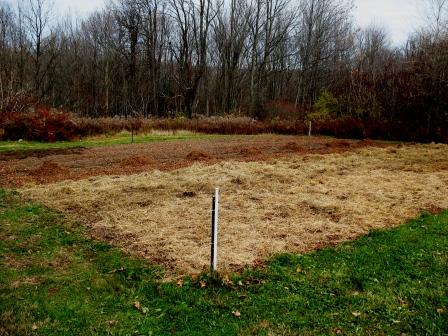




To understand permaculture is simply to look at how nature has been growing things for thousands of years. The 'secret' is simply to keep the soil covered with plants or mulch.




 1
1




 1
1








Life is too short, plant a tree for those that follow.
 1
1




My project thread
Agriculture collects solar energy two-dimensionally; but silviculture collects it three dimensionally.
 1
1




Michael Vormwald wrote:It occurs to me as I 'rob' the grass clippings and leaves from my property to enrich my garden soil that I'm really robbing Peter to pay Paul. As the soil in my garden improves, the soil beneath the lawn and the trees suffers. Makes you think.
Now I suppose if you get organic materials from 'off-site' that would otherwise be wasted, it's a different story. Then still, is it really sustainable and/or permaculture?








Iterations are fine, we don't have to be perfect
My 2nd Location:Florida HardinessZone:10 AHS:10 GDD:8500 Rainfall:2in/mth winter, 8in/mth summer, Soil:Sand pH8 Flat




Cris Bessette wrote:
As for sustainability- the goal is to try to emulate a closed system...
My project thread
Agriculture collects solar energy two-dimensionally; but silviculture collects it three dimensionally.





Cj Verde wrote:
Cris Bessette wrote:
As for sustainability- the goal is to try to emulate a closed system...
I disagree. I think the goal is to mimic nature which is not really a closed system. It's externally solar powered.
 1
1




 1
1




S Bengi wrote:...We rob other animals of oxygen so that we can breath.
My project thread
Agriculture collects solar energy two-dimensionally; but silviculture collects it three dimensionally.




Cj Verde wrote:This has been a problem in some cultures where they take too much detritus from the forest and it effects forest fertility. There is a formula that works but I'm not positive what it is.
It's would be better to take material from a plant you want to disadvantage if you have something like that. In my case, I've got lots for reeds which makes good mulch since there are no seeds. Some people grow crops specifically for this purpose that can handle cutting like comfrey.
To understand permaculture is simply to look at how nature has been growing things for thousands of years. The 'secret' is simply to keep the soil covered with plants or mulch.




Michael Vormwald wrote:
Hmm - I see it in principal and obviously have concerns...then again in many/most small cities and towns leaves are collected annually and discarded and the tress show no apparent signs of distress. Makes you wonder.
 1
1




Michael Vormwald wrote:It occurs to me as I 'rob' the grass clippings and leaves from my property to enrich my garden soil that I'm really robbing Peter to pay Paul. As the soil in my garden improves, the soil beneath the lawn and the trees suffers. Makes you think.
Now I suppose if you get organic materials from 'off-site' that would otherwise be wasted, it's a different story. Then still, is it really sustainable and/or permaculture?






Our Microgreens: http://www.microortaggi.it

|
Forget Steve. Look at this tiny ad:
Rocket Mass Heater Resources Wiki
https://permies.com/w/rmh-resources
|





